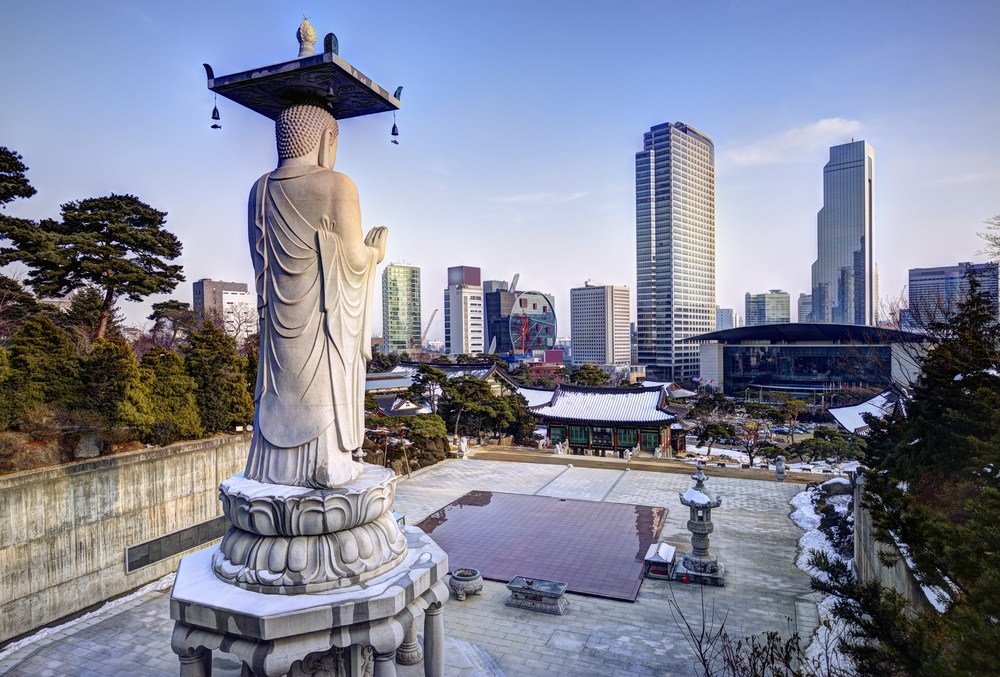Bitcoin Price Hits New All-Time High in South Korea, at $8,450

The global average bitcoin price has surpassed $8,300 earlier today, on November 24, as the South Korean market demonstrated trades with a premium rate of around 5 percent.
Since then, the price of bitcoin has fallen to $8,150, experiencing a slight correction. However, in the South Korean bitcoin market, the third largest market in the world behind Japan and the US, bitcoin is still being traded at a price of $8,450, with a $300 premium.
 Premium Emerges in South Korea When Bitcoin Price Rises
Premium Emerges in South Korea When Bitcoin Price Rises
Historically, the South Korean bitcoin exchange market has demonstrated high premiums amidst strong bitcoin rallies. A surge in the price of bitcoin usually triggers general consumers and investors on major exchanges like Bithumb to invest in bitcoin, even with a substantial premium.
Last week, when the price of bitcoin plummeted from $7,200 to $5,600 and the price of Bitcoin Cash surged from $1,200 to $2,900, Bithumb processed twice as much as daily trades as the South Korean stock market KOSDAQ.
Although South Korea remains as a leading bitcoin market with high liquidity provided by Bithumb, Coinone, and Korbit, a sudden surge in demand for bitcoin initiated by an increase in the price of bitcoin triggers investors to buy bitcoin in a short period of time, causing premiums to appear.
Earlier today, when the bitcoin price reached $8,300, bitcoin was being traded at around $8,500 in South Korea. When the price of bitcoin recorded a slight correction and fell to $8,150, the $8,500 price remained in South Korea, as more traders rushed into invest in bitcoin.
JPMorgan and South Korea
The South Korean finance industry tends to follow the trend established by other leading regions like the US and Japan. For instance, the Wall Street Journal’s report in regards to JPMorgan’s plan to trade bitcoin futures upon the launch of CME’s bitcoin futures exchange on December 11, was relayed by nearly every mainstream news publication within South Korea, further increasing the demand for bitcoin from the public.
JPMorgan is the largest investment bank in the world, with a $341 billion market cap. Previously, when JPMorgan CEO Jamie Dimon falsely claimed that bitcoin is a fraud and that any trader within the firm who initiates in bitcoin trading will be fired, the South Korean finance industry reacted negatively and the demand for bitcoin decreased, until enthusiastic announcements from CME, Man Group, and other major financial institutions were released.
Hence, when the WSJ report was released, the South Korean finance sector along with its cryptocurrency community demonstrated optimism towards the mid-term growth trend of bitcoin.
More to that, the report of Choe Heung-sik, chief of the Financial Supervisory Service (FSS), revealed that the South Korean government will not impose strict regulations on cryptocurrency exchanges in the foreseeable future.
“Though we are monitoring the practice of cryptocurrency trading, we don’t have plans right now to directly supervise exchanges. Supervision will come only after the legal recognition of digital tokens as a legitimate currency,” said Choe.
Featured image from Shutterstock.
